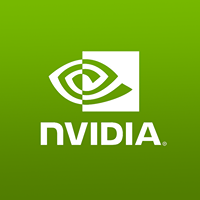Nvidia's Bold Move: The $700 Million Bet on AI Infrastructure
December 31, 2024, 9:30 pm
Nvidia has just made waves in the tech world. The chipmaker has completed its acquisition of Run:ai, an Israeli startup specializing in AI infrastructure. This $700 million deal faced significant scrutiny but ultimately cleared regulatory hurdles. The acquisition is a strategic play in a fiercely competitive market. Nvidia, already a titan in graphics processing units (GPUs), is doubling down on its dominance.
Nvidia's journey to acquire Run:ai began with a vision. The company aims to enhance its offerings in the AI space. Run:ai specializes in optimizing infrastructure for AI workloads. This is crucial as AI applications continue to surge. The demand for efficient processing power is skyrocketing. Nvidia recognized this need and acted swiftly.
The European Commission's approval was a pivotal moment. Initially, there were concerns about competition. Nvidia controls about 80% of the GPU market. Regulators feared that this acquisition could stifle competition. However, after thorough investigation, the Commission concluded that the deal would not harm market dynamics. This decision opened the door for Nvidia to solidify its position.
But the scrutiny didn’t stop there. The U.S. Department of Justice is also investigating the acquisition. Antitrust concerns are rampant in the tech industry. Regulators are increasingly wary of big companies swallowing smaller ones. They worry that such moves could eliminate potential rivals. This is a delicate dance for Nvidia. The company must navigate these waters carefully.
Run:ai's plans to open-source its software add another layer to this story. By making its technology available to all, Run:ai aims to foster innovation. Currently, its software supports only Nvidia GPUs. However, the open-source move could broaden its reach. This could benefit the entire AI ecosystem. It’s a smart strategy that could mitigate some regulatory concerns.
The tech landscape is shifting. Companies are racing to harness AI's potential. Nvidia is at the forefront of this revolution. Its GPUs are the backbone of many AI applications. The acquisition of Run:ai is a strategic maneuver to enhance its offerings. It’s about more than just hardware; it’s about creating a robust infrastructure for AI development.
The competition is fierce. Other tech giants are also eyeing the AI space. Google, Microsoft, and Amazon are all investing heavily. They are developing their own AI capabilities. Nvidia must stay ahead of the curve. The Run:ai acquisition is a step in that direction. It allows Nvidia to integrate advanced software solutions with its powerful hardware.
The implications of this deal extend beyond Nvidia. The AI industry is evolving rapidly. Startups are emerging with innovative solutions. Nvidia’s acquisition strategy could signal a trend. Larger companies may continue to acquire smaller firms to bolster their capabilities. This could reshape the competitive landscape.
Regulatory scrutiny is a double-edged sword. On one hand, it protects competition. On the other, it can stifle innovation. Nvidia’s experience highlights this tension. The company is pushing boundaries while facing regulatory challenges. It’s a balancing act that many tech firms will have to navigate.
The future of AI is bright, but it’s also uncertain. As companies like Nvidia expand their reach, the question remains: how will this affect competition? Will smaller players be able to thrive? Or will they be swallowed up by giants? The answers are still unfolding.
Nvidia’s acquisition of Run:ai is a bold statement. It signals confidence in the AI market. The company is betting on the future of technology. As AI continues to evolve, Nvidia aims to be at the helm. The road ahead may be rocky, but the potential rewards are immense.
In conclusion, Nvidia's $700 million acquisition of Run:ai is a significant move in the tech industry. It reflects the growing importance of AI infrastructure. The deal faced regulatory hurdles but ultimately cleared them. Nvidia is positioning itself as a leader in the AI space. The implications of this acquisition will be felt across the industry. As the landscape shifts, one thing is clear: Nvidia is not just playing the game; it’s aiming to win.
Nvidia's journey to acquire Run:ai began with a vision. The company aims to enhance its offerings in the AI space. Run:ai specializes in optimizing infrastructure for AI workloads. This is crucial as AI applications continue to surge. The demand for efficient processing power is skyrocketing. Nvidia recognized this need and acted swiftly.
The European Commission's approval was a pivotal moment. Initially, there were concerns about competition. Nvidia controls about 80% of the GPU market. Regulators feared that this acquisition could stifle competition. However, after thorough investigation, the Commission concluded that the deal would not harm market dynamics. This decision opened the door for Nvidia to solidify its position.
But the scrutiny didn’t stop there. The U.S. Department of Justice is also investigating the acquisition. Antitrust concerns are rampant in the tech industry. Regulators are increasingly wary of big companies swallowing smaller ones. They worry that such moves could eliminate potential rivals. This is a delicate dance for Nvidia. The company must navigate these waters carefully.
Run:ai's plans to open-source its software add another layer to this story. By making its technology available to all, Run:ai aims to foster innovation. Currently, its software supports only Nvidia GPUs. However, the open-source move could broaden its reach. This could benefit the entire AI ecosystem. It’s a smart strategy that could mitigate some regulatory concerns.
The tech landscape is shifting. Companies are racing to harness AI's potential. Nvidia is at the forefront of this revolution. Its GPUs are the backbone of many AI applications. The acquisition of Run:ai is a strategic maneuver to enhance its offerings. It’s about more than just hardware; it’s about creating a robust infrastructure for AI development.
The competition is fierce. Other tech giants are also eyeing the AI space. Google, Microsoft, and Amazon are all investing heavily. They are developing their own AI capabilities. Nvidia must stay ahead of the curve. The Run:ai acquisition is a step in that direction. It allows Nvidia to integrate advanced software solutions with its powerful hardware.
The implications of this deal extend beyond Nvidia. The AI industry is evolving rapidly. Startups are emerging with innovative solutions. Nvidia’s acquisition strategy could signal a trend. Larger companies may continue to acquire smaller firms to bolster their capabilities. This could reshape the competitive landscape.
Regulatory scrutiny is a double-edged sword. On one hand, it protects competition. On the other, it can stifle innovation. Nvidia’s experience highlights this tension. The company is pushing boundaries while facing regulatory challenges. It’s a balancing act that many tech firms will have to navigate.
The future of AI is bright, but it’s also uncertain. As companies like Nvidia expand their reach, the question remains: how will this affect competition? Will smaller players be able to thrive? Or will they be swallowed up by giants? The answers are still unfolding.
Nvidia’s acquisition of Run:ai is a bold statement. It signals confidence in the AI market. The company is betting on the future of technology. As AI continues to evolve, Nvidia aims to be at the helm. The road ahead may be rocky, but the potential rewards are immense.
In conclusion, Nvidia's $700 million acquisition of Run:ai is a significant move in the tech industry. It reflects the growing importance of AI infrastructure. The deal faced regulatory hurdles but ultimately cleared them. Nvidia is positioning itself as a leader in the AI space. The implications of this acquisition will be felt across the industry. As the landscape shifts, one thing is clear: Nvidia is not just playing the game; it’s aiming to win.

